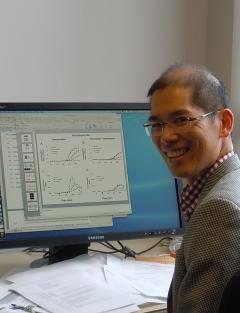-
About
- Departments & Offices
-
Academics
- Public Health
- Biomedical Sciences
- Physician Assistant
- Special Master’s (MBS)
-
Admissions & Financial Aid
- Tuition & Fees
-
Student Experience
-
- Student Resources by Program
- Academic & Student Support
- Wellness & Wellbeing
- Student Life
- Events & Traditions
-
-
Research
- Research Labs & Centers
- Tufts University-Tufts Medicine Research Enterprise
-
Local & Global Engagement
- Pathway & Enrichment Programs
- Global Health Programs
- Community Engagement

John Leong
(617) 636-0488
136 Harrison Avenue, Room Arnold 511

Research/Areas of Interest
In causing disease, bacterial pathogens establish an infectious niche and generate damage within the mammalian host. We investigate three bacterial pathogens to understand the host-microbe interactions that promote colonization and disease, and then, during resolution of infection, mediate microbial clearance. Enterohemorrhagic Escherichia coli (EHEC) O157:H7 is a food-borne intestinal pathogen that that colonizes the intestinal epithelium and produces shiga toxin, a which is responsible for cause systemic disease, including renal failure. We developed a murine model of EHEC infection to understand mechanisms of colonization and disease, as well as to develop therapeutic or preventative interventions. Streptococcus pneumoniae, an important cause of lung infection, causes damage largely by inducing a vigorous host inflammatory response, and we are investigating how the pathogen is recognized by the host with a goal of modulating the acute immune response to mitigate disease. Finally, the Lyme disease spirochete Borrelia burgdorferi, each can establish a localized infection but are also capable of spreading throughout the host. We investigate spirochete-host interactions that promote bloodstream survival and tissue invasion.
Education
- Doctor of Medicine, Brown University, USA, 1987
- Doctor of Philosophy, Brown University, USA, 1985
- Bachelor of Arts, Brown University, USA, 1979